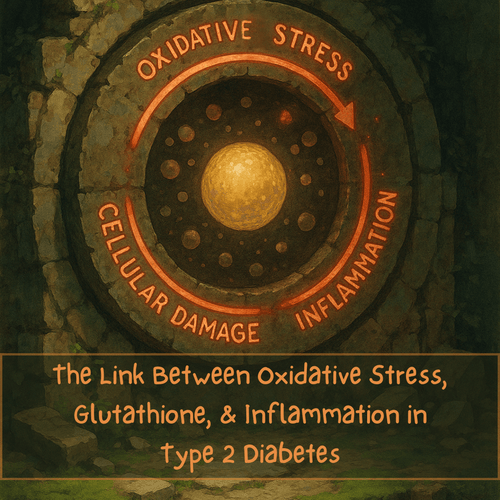
Inflammation is often seen as the root of many chronic health problems, and one of the key markers for inflammation in the body is a substance called C-reactive protein (CRP). Elevated CRP levels are linked to several diseases, including cardiovascular issues, diabetes, and autoimmune disorders. With the growing interest in natural solutions for reducing inflammation, researchers have focused on the role of magnesium (Mg) supplementation in lowering CRP levels. A recent study (Mazidi M et.al., 2018), which included a systematic review and meta-analysis of randomized controlled trials (RCTs), suggests that magnesium supplements may indeed reduce CRP levels—bringing promising results to the forefront.
What the Research Tells Us
In their meta-analysis, researchers reviewed eight studies from a pool of 96 entries, all testing magnesium supplements’ effects on CRP levels. Using data from trusted sources like PubMed, Cochrane, and Google Scholar, the researchers examined magnesium’s potential impact. The findings were significant, with results showing a notable reduction in serum CRP concentrations among participants who took magnesium supplements compared to those who didn’t.
Specifically, the meta-analysis revealed a weighted mean difference (WMD) of -1.33 mg/l in CRP levels for participants taking magnesium. This is noteworthy because even small reductions in CRP levels can positively affect overall health, particularly for individuals at risk of cardiovascular disease or other inflammatory conditions.
Why CRP and Inflammation Matter
CRP is a protein produced by the liver in response to inflammation in the body, and doctors often measure CRP levels as a key marker for assessing inflammation. High CRP levels are linked to chronic conditions such as heart disease, diabetes, and metabolic syndrome. Consequently, reducing CRP levels with something as accessible as magnesium supplementation could represent a breakthrough for many people at risk of these health issues.
What This Means for You
Magnesium is a critical mineral that supports over 300 biochemical reactions in the body, aiding muscle function, nerve transmission, and immune support. Despite its importance, magnesium deficiency is widespread, especially in Western diets.
For those looking to reduce inflammation naturally, magnesium supplements may be a valuable option. They’re generally safe, widely available, and more cost-effective than many other anti-inflammatory treatments. However, as with any supplement, it’s essential to consult your healthcare provider before starting, particularly if you have underlying health conditions.
Where to Find High-Quality Magnesium
If you’re interested in exploring magnesium supplements, Magnesium Glycinate is an excellent option. Known for its high absorption rate and gentle effect on the stomach, Magnesium Glycinate is particularly suited for individuals looking to boost their magnesium intake with minimal side effects.
Limitations and Future Research
While these findings are encouraging, the researchers also highlighted the need for more RCTs with larger sample sizes and longer follow-up periods. This additional research would further confirm magnesium's role in reducing CRP levels and enhance our understanding of its anti-inflammatory effects.
Final Thoughts
Magnesium supplementation offers a promising approach to reducing CRP levels and potentially overall inflammation in the body. Although more research is needed, current evidence suggests magnesium could be a simple yet effective tool for supporting health. For anyone interested in holistic ways to manage inflammation, magnesium might just be worth a closer look.
Reference
Mazidi M, Rezaie P, Banach M. Effect of magnesium supplements on serum C-reactive protein: a systematic review and meta-analysis. Arch Med Sci. 2018 Jun;14(4):707-716.









